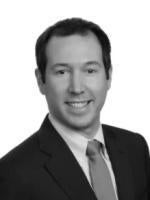As a general rule in Massachusetts, the officers and directors of a corporation do not owe fiduciary duties to individual shareholders, which duties are instead owed to the corporation itself. See Int’l Bhd. of Elec. Workers Local No. 129 Benefit Fund v. Tucci, 476 Mass. 553, 561-562 (2017).
There are, however, exceptions to this general rule. In Tucci, the Supreme Judicial Court identified “at least” two exceptions to this rule: (1) in “close” corporations – i.e., corporations with a small number of shareholder which resemble a partnership – the shareholders owe each other duties of good faith and loyalty consistent with those owed between partners; and (2) a controlling shareholder who also is a corporate officer or director who proposes and implements a self-interested transaction may be liable to the adversely affected shareholders.
More recently, in decision coming out the Business Litigation Session, the Court recognized a further exception in the context of a dispute between shareholder-physicians. See Punzak v. Anesthesia Associates of Massachusetts, et al., Superior Court CA No.15-2433-BLS1 (Kaplan, J) (April 5, 2019); see also Punzak v. Anesthesia Associates of Massachusetts, et al., 2019-J-0199 (denying employer’s interlocutory appeal).
In Punzak, the BLS judge found that, despite the large number of shareholders — an eighty (80) physician practice group — professional corporations like Anesthesia Associates of Massachusetts (AAM) were “strikingly similar” to closely held corporations. For example, all shareholders perform similar work; all of AAM’s income comes from fees earned by shareholders, and AAM’s revenue is distributed to shareholders as salary; and the shareholders even refer to each other as “partner.” Furthermore, although the President of AAM, Dr. English, was not a controlling shareholder in terms of equity interest, he held comparable power over the other shareholders and used his power to the detriment of Dr. Punzak.
Under these circumstance, the BLS judge found that “another exception to the general rule applies,” and denied the Defendant’s motion for summary judgement with respect to Dr. Punzak’s breach of fiduciary duty claim.
Further, while outside the context of a shareholder-related dispute, another recent Massachusetts decision similarly recognized that the parameters of fiduciary duty claims are varied and not subject to a bright-line test or rule. See Connolly v. Roman Catholic Archbishop of Boston, et al., Superior Court CA No. 1782CV1126 consolidated with CA No. 1882CV119 (Buckley, J) (May 17, 2019). In Connolly, a different Judge of the Massachusetts Superior Court wrote that, because the circumstances that may give rise to fiduciary duties are so varied, courts have expressly declined to formulate a definition that can be applied in every case – and that, irrespective of duties generally owed by a defendant, a jury may find that the circumstances regarding a particular plaintiff may give rise to fiduciary duties.
As these decisions show, the nature and extent of fiduciary duties vary from case-to-case and are extremely fact specific. Whether or not you can bring a claim – or have a claim brought against you – requires in-depth analysis by competent counsel.




 />i
/>i

